 David Bole is our Head of Sector Capacity and Green Economy at the Forestry Commission. Here, he discusses why it’s a great time to be in forestry, and how a career in forestry is varied and very rewarding.
David Bole is our Head of Sector Capacity and Green Economy at the Forestry Commission. Here, he discusses why it’s a great time to be in forestry, and how a career in forestry is varied and very rewarding.
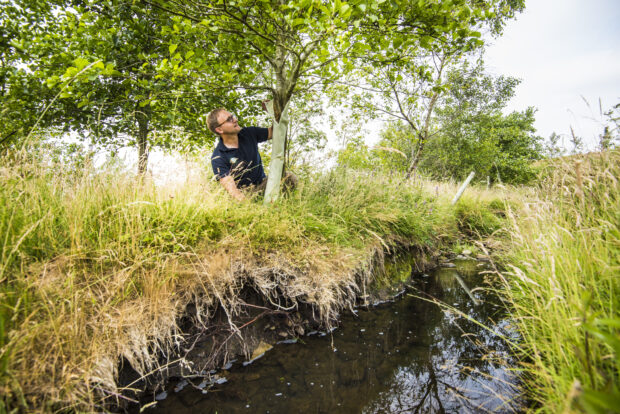
The UK is home to many beautiful landscapes and we all have a role to play to protect and nurture these places for future generations. Nature, the environment and our society face a number of challenges including climate change and biodiversity loss. Did you know trees, woodlands and forests can be part of the solution? They provide unique habitats, they capture carbon to mitigate the impact of climate change, and they provide us with amazing places to enjoy.
For our trees, woods and forests to thrive, they need to be cared for, managed and cherished. This is where you come in! Whether you are at the beginning of your forestry journey or considering a career change, forestry needs passionate, knowledgeable and skilful people like you. There are so many different roles available. These range from foresters and woodland managers on the ground, IT and marketing staff. Economists, scientists and ecologists are also needed. Additionally, there are visitor services roles and project managers.
A rewarding career in a growing sector
This blog post will talk about all the fantastic reasons that make a career in forestry meaningful and worthwhile. With legally binding woodland creation targets in place, the sector is only going to grow, making it a great time to be in forestry.
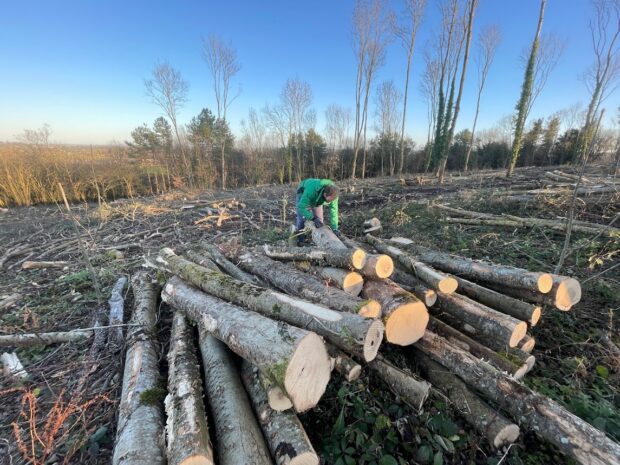
You can make a difference
Choosing a career in forestry lets you make a difference to the future of our planet, wildlife and society. For example, the UK’s forests and woodlands remove around 18 million tonnes of carbon from the atmosphere every year [1]. Trees provide vital habitat for thousands of species – a single oak tree alone can support over 2,300 species [2]. If you look around, you’ll likely see several items made from wood. Trees provide the raw material for everyday products, which store carbon throughout their lifetime. However, 81% of timber in the UK is imported [3], so we need to produce more of our own wood. Sustainable management of our woodlands will improve our timber security, conserve wildlife, help to tackle the climate emergency, improve well-being and more.
Innovation and technology
Never has there been a more crucial or exciting time to work with trees. New technologies like drones are aiding our efforts. Robotics and AI are enhancing machinery to boost productivity. Ongoing scientific developments provide deeper insights into forest ecology and inform decision making. With a growing emphasis on sustainable forest management, there is now more role diversity available for individuals with technical expertise in these fields.
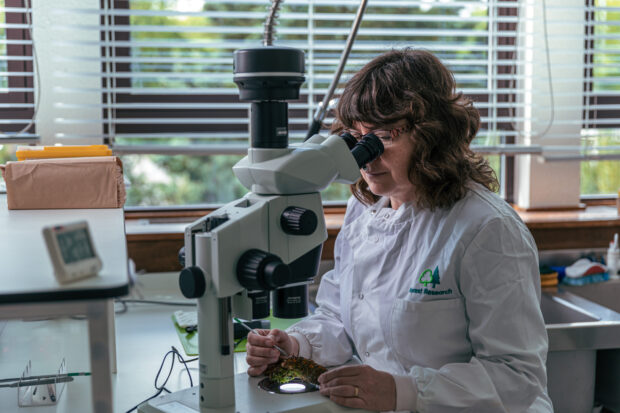
There are many different roles
You may be interested in a technical forestry role, such as a Forest Craftsperson, involved in the hands-on, day to day work in a woodland. Forest Works Managers oversee operations in the woods, ensuring sites are safe and well managed. Foresters plan operations and decide the future of each part of the forest. They adopt sustainable forestry practices that maintain and improve the productivity, diversity and resilience of forest ecosystems - impacting wider society in countless ways.
Although important, a role in forestry isn’t solely about tree planting and woodland management. There are countless of non-operational roles that are crucial so that reaching our climate, timber, biodiversity and biosecurity goals is possible. Employers in the forestry sector also need ecologists to ensure sustainable practices that benefit biodiversity. Landscape architects design how woodlands fit in the landscape. Economists ensure optimal decision making. Scientists advance our understanding to grow resilient forests for an unknown future. Communications professionals share success stories to inspire involvement for people to make a difference. Roles also include recreation, marketing, design, project management and more.
A growing sector
The forest sector is growing with around 24,000 people currently employed in core forestry roles [4]. Including other vital non-operational roles like visitor services, IT, marketing, economists, scientists and ecologists, the total number is significantly higher. Additionally, over half of core forestry workers are self-employed, giving them the flexibility to manage their time and work/life balance.

Forestry needs you!
A career in the forestry sector offers excellent employment opportunities across various roles. Depending on your skills, experience and interests, there’s a role for everyone. Forestry values diversity, welcoming people from different backgrounds to bring fresh perspectives. You don’t have to have a background in land management or the countryside either – I started in forestry after working as an estate agent!
There are multiple pathways into the sector, including apprenticeships at technical and professional levels, full-time courses at Level 3 and at degree level (Level 6). Career progression is strong as experience grows. Many in forestry come from other fields like agriculture or even the military. Forestry jobs involve diverse skills to solve large-scale problems, benefitting both people and wildlife and will remove thousands of tonnes of carbon from the atmosphere. You can really make a difference.
So, why wait? Come join us and launch your career in forestry today!
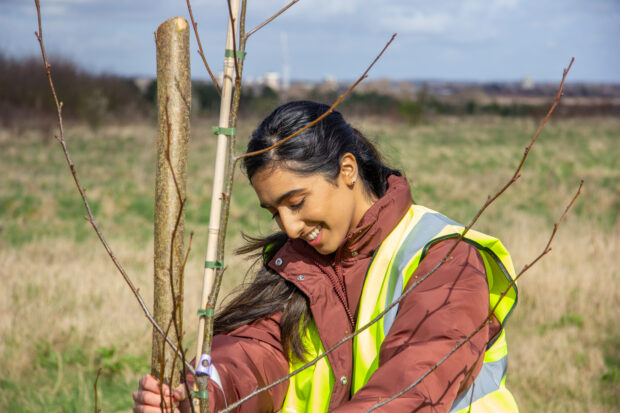
Discover more careers resources including routes into forestry, training, job opportunities and more on our careers page on GOV.UK.
References
[1] Forestry Statistics 2023 (Forest Research)
[2] Oak trees and wildlife 2019 (Woodland Trust)
[3] Regenerative Forestry – Forestry and forests for the future 2022 (Soil Association)
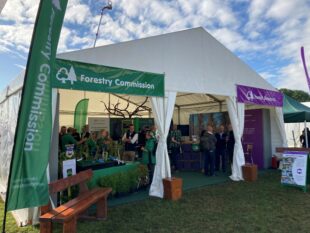
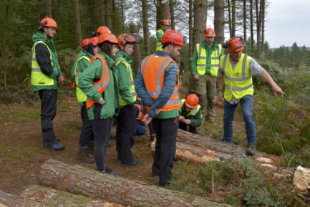

Leave a comment